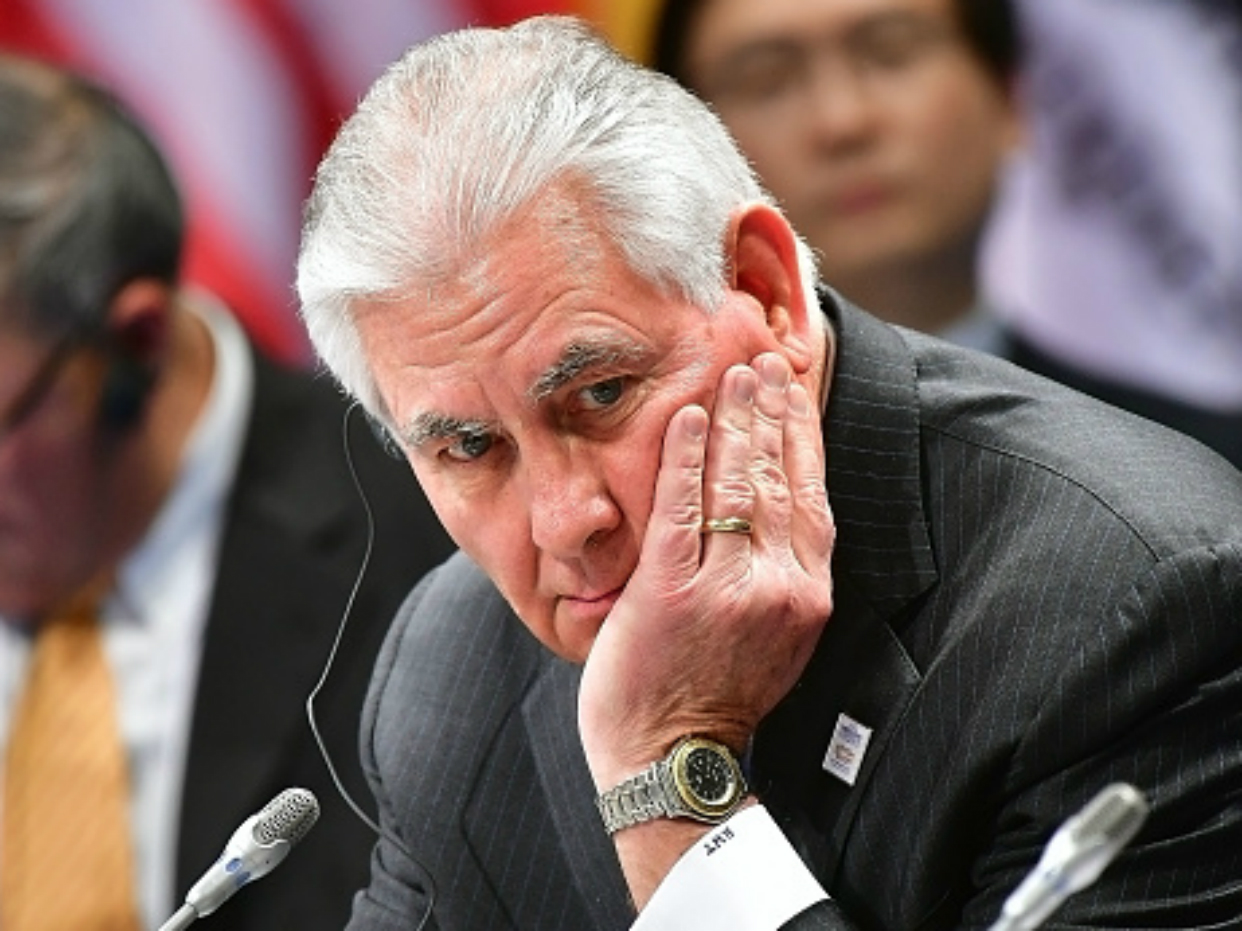Exxon Mobil 'seeks waiver' from Russia sanctions
Oil giant once under the control of Rex Tillerson wants to resume its oil exploration venture with Rosneft

A free daily email with the biggest news stories of the day – and the best features from TheWeek.com
You are now subscribed
Your newsletter sign-up was successful
Oil giant Exxon Mobil, whose former chief executive Rex Tillerson is now US Secretary of State, has reportedly applied for a waiver from US Treasury sanctions on Russia so it can continue to drill in the Black Sea in a venture with the Russian state oil company Rosneft.
While the waiver application was launched under the Obama administration, before Tillerson's appointment, it comes "at a delicate time in Russian-American relations, with rising tensions over the war in Syria and a looming congressional inquiry into reports of Russian efforts to influence the United States presidential election", says the New York Times.
The request has provoked uproar, with Republican senator John McCain, asking: "Are they crazy?"
The Week
Escape your echo chamber. Get the facts behind the news, plus analysis from multiple perspectives.

Sign up for The Week's Free Newsletters
From our morning news briefing to a weekly Good News Newsletter, get the best of The Week delivered directly to your inbox.
From our morning news briefing to a weekly Good News Newsletter, get the best of The Week delivered directly to your inbox.
Why are there sanctions on Russia?
Washington and the EU imposed economic sanctions on Russia after its annexation of Crimea in 2014.
The sanctions "prevent US companies from dealings with Rosneft involving technology transfer, and also target Rosneft chief - and Putin confidant - Igor Sechin", says Foreign Policy.
However, despite the Ukraine crisis deepening, "Exxon continued pressing for deeper involvement in Russia's oil industry", says the New York Times.
A free daily email with the biggest news stories of the day – and the best features from TheWeek.com
Why does Exxon want a waiver?
"The financial incentives for Exxon are powerful when it comes to Russia," says CNN. "The undeveloped oil fields near the Black Sea are thought to be the most promising in the Russian Arctic."
Last year, Tillerson said the company was "very anxious to get back to work there", referring to a deal struck between Exxon and Rosneft before the sanctions were implemented. "In Russia, we're there for the long term," new chief executive Darren Woods told Forbes in February.
Will they get a waiver?
It's unlikely. Hal Eren, a former official in the Treasury Department's Office of Foreign Assets Control, said such waivers were rarely requested or granted and that in most cases, permission was given only for environmental or safety reasons.
"I don't think they would issue a licence, especially given the political context in which this takes place," he added.
Adam Schiff, the top Democrat on the House Intelligence Committee, also said the waiver should be denied.
"Until Russia abides by the Minsk accords and ends its illegal occupation of Crimea, the only changes to sanctions should be their intensification, not their dilution," he said.
-
 The environmental cost of GLP-1s
The environmental cost of GLP-1sThe explainer Producing the drugs is a dirty process
-
 Greenland’s capital becomes ground zero for the country’s diplomatic straits
Greenland’s capital becomes ground zero for the country’s diplomatic straitsIN THE SPOTLIGHT A flurry of new consular activity in Nuuk shows how important Greenland has become to Europeans’ anxiety about American imperialism
-
 ‘This is something that happens all too often’
‘This is something that happens all too often’Instant Opinion Opinion, comment and editorials of the day
-
 Epstein files topple law CEO, roil UK government
Epstein files topple law CEO, roil UK governmentSpeed Read Peter Mandelson, Britain’s former ambassador to the US, is caught up in the scandal
-
 Iran and US prepare to meet after skirmishes
Iran and US prepare to meet after skirmishesSpeed Read The incident comes amid heightened tensions in the Middle East
-
 Israel retrieves final hostage’s body from Gaza
Israel retrieves final hostage’s body from GazaSpeed Read The 24-year-old police officer was killed during the initial Hamas attack
-
 China’s Xi targets top general in growing purge
China’s Xi targets top general in growing purgeSpeed Read Zhang Youxia is being investigated over ‘grave violations’ of the law
-
 Panama and Canada are negotiating over a crucial copper mine
Panama and Canada are negotiating over a crucial copper mineIn the Spotlight Panama is set to make a final decision on the mine this summer
-
 How oil tankers have been weaponised
How oil tankers have been weaponisedThe Explainer The seizure of a Russian tanker in the Atlantic last week has drawn attention to the country’s clandestine shipping network
-
 Why Greenland’s natural resources are nearly impossible to mine
Why Greenland’s natural resources are nearly impossible to mineThe Explainer The country’s natural landscape makes the task extremely difficult
-
 Iran cuts internet as protests escalate
Iran cuts internet as protests escalateSpeed Reada Government buildings across the country have been set on fire